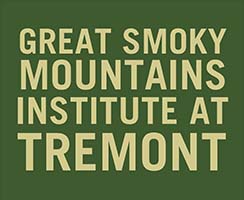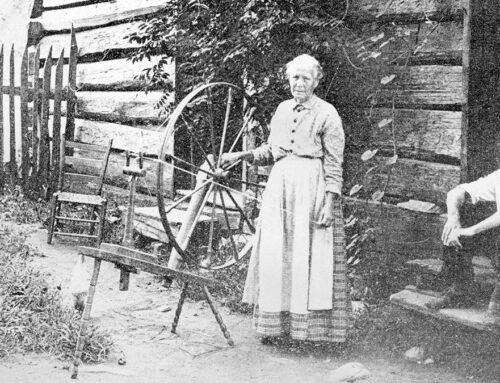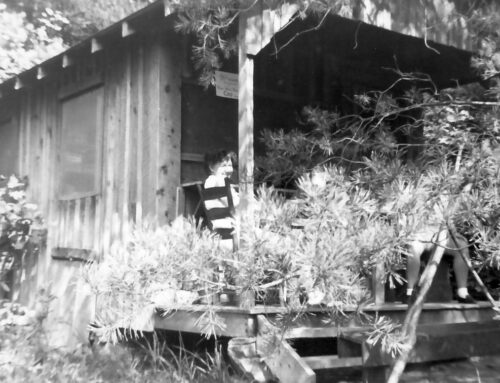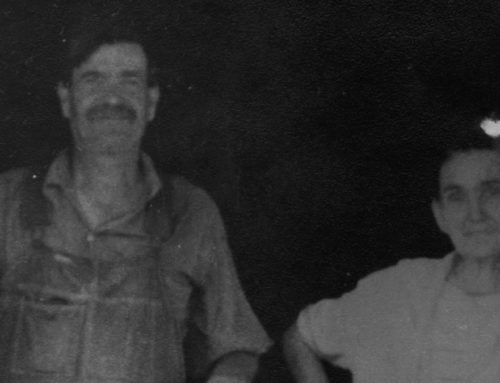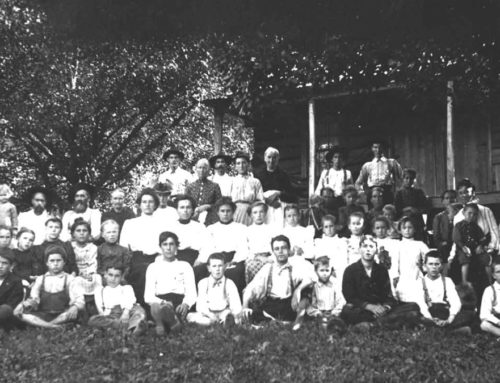If Fodderstack Could Speak: Walker Valley Lore
Written by Jeremy Lloyd, Manager of Field Programs and Collegiate Studies and author of A Home in Walker Valley: The Story of Tremont
This occasional series is named for the mountain overlooking the Walker Valley campus of Tremont Institute in Great Smoky Mountains National Park. If Fodderstack Mountain could speak, these are a few things it might reveal.
Moonshine
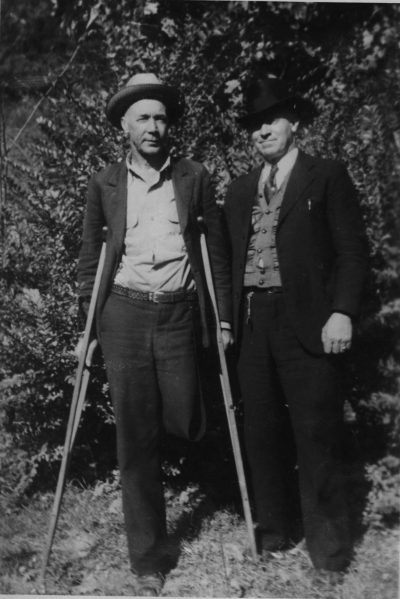
Ashley Moore, on left, was the son of a moonshiner and spent time in prison for making liquor himself.
Oh tear my stillhouse down, let it go to rust
Don’t leave no trace of the hiding place, where I made that evil stuff
For all my time and money, no profit did I see
That old copper kettle was the death of me.
From “Tear My Stillhouse Down” by Gillian Welch
Question: how many gallons of moonshine were distilled in Walker Valley?
Answer: we’ll never know.
Little evidence of the practice remains other in names on maps including that of Stillhouse Hollow, a branch that runs off the northeast flank of Fodderstack Mountain into the Middle Prong.
Loon Grant Moore and Will Stinnett were both said to be moonshiners. Loon was Will’s brother-in-law and son-in-law. Loon’s sister was Mary Ann Moore, who was Will’s second wife. Loon’s first wife was Betty Walker, who was Will and Nancy’s daughter. Needless to say, the family tree in those days grew and twisted in ever-fascinating ways.
Frederic Webb wrote in his journal that Loon’s house was a “hovel of logs.” Also, “[The] man married twice and never owned a stove.” His house resided near the location of the second bridge that crosses over the Middle Prong today.
Loon Grant did not live an easy life. His first wife Betty died. One daughter was killed, another one drowned, and a third one was blind till age eleven. Whether he turned to making illicit liquor due to economic hardship or for some other reason is unknown. Loon’s son Ashley also would make moonshine, and spend time behind bars for doing so.
Today we think of moonshine as a quaint practice that “old-timers” and “hillbillies” participated in way back in the holler. But it was taken very seriously, and still is in many places. In the old days especially, it was extremely important as a means of providing income for families living in remote places where it was difficult to raise crops let alone make money. Moonshine went by another name—“blockade”—which symbolized an independent spirit. Men (and it was always men) fought and sometimes killed one another over it. Hobbie Stinnett was one such person. (Learn more about him in a future edition of this series.)
Did Will Walker ever make moonshine? Arnold Thompson, who grew up in the valley and knew the elder Walker, didn’t think so. There’s a story of Will Walker, circa 1916, coming to the post office at the forks of the river to pick up his order of liquor. It included three gallons of whiskey and/or apricot or peach brandy in gallon jugs. He reportedly would use it for his own personal use and never shared it, and Arnold Thompson claims to have only ever seen him nip at it, and never saw him drunk. One surmises from this that Will did not himself make spirits.
For a time, in the mid 19th century, George Powell operated a legal distillery in Cades Cove in the Parson Branch Road area (known back then as Chestnut Flats). He likely sold his liquor to people in Tuckaleechee Cove and elsewhere nearby. (One source says he made fine brandies from the 2,000 apple and peach trees he grew in his orchard.) However, by the Civil War, and hence before Will and Nancy settled at the foot of Fodderstack, revenuers had raided Powell’s stills. This, as well as the fact that Arnold Thompson knew Will Walker years later, in the second decade of the 20th century, makes it unlikely that Will purchased his libations from George Powell.
Moonshining was frowned upon by most people. Though it ostensibly brought more money into the family purse, it hardly strengthened the character of the men who made it and often did just the opposite. Henry Stinnett serves as one such example. Stinnett, who was possibly the son of Ben and Millie Stinnett, was said to have gotten rich as a doctor as well as through selling whiskey. He moved to Knoxville but blew all his money and moved once more. It is not without irony and metaphorical resonance that the name of the place where he settled next was the Sinks.
